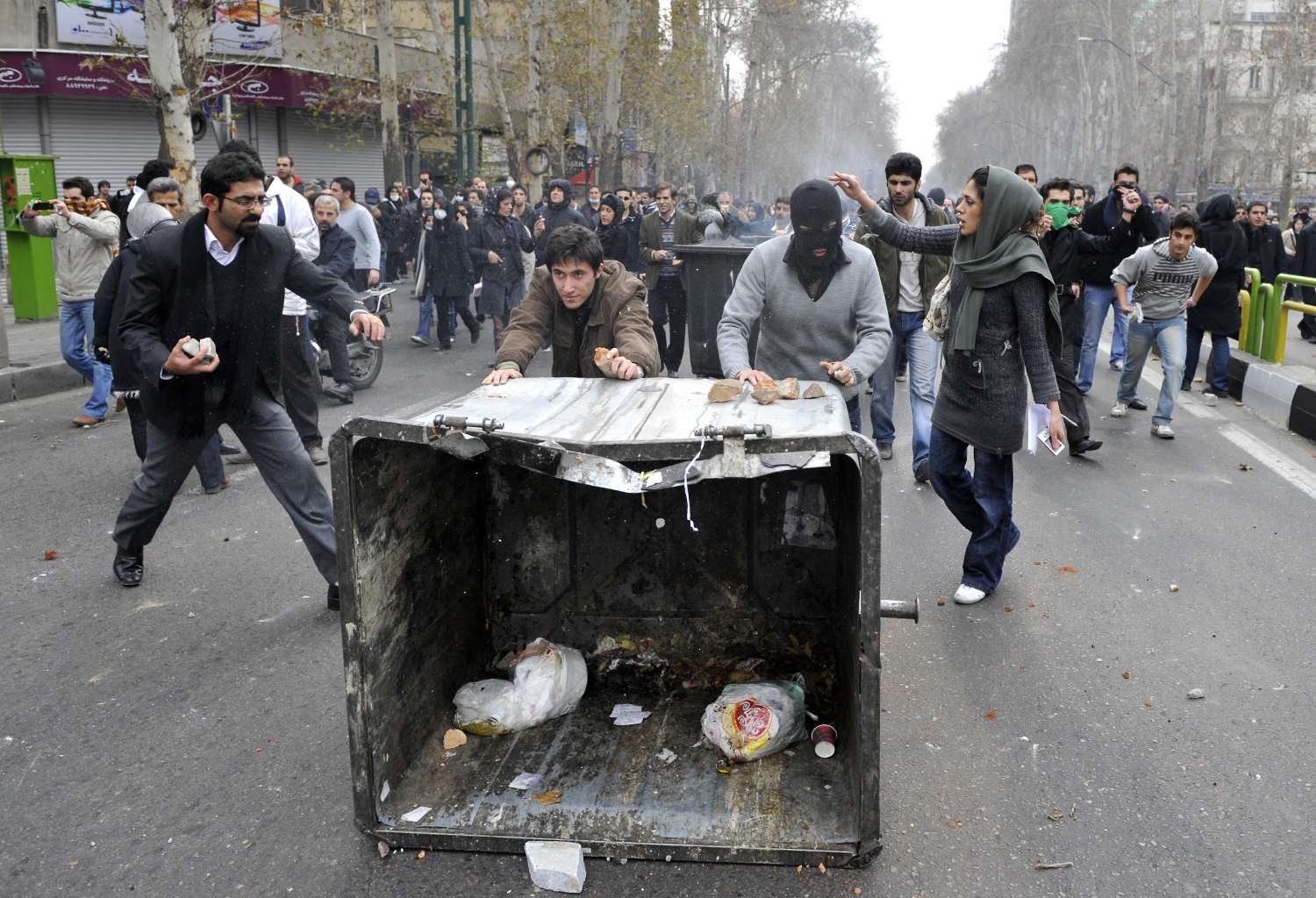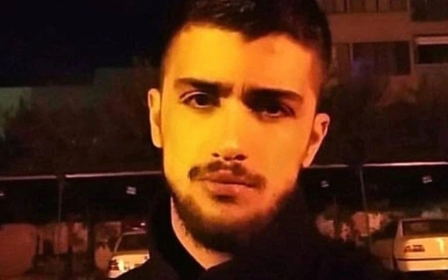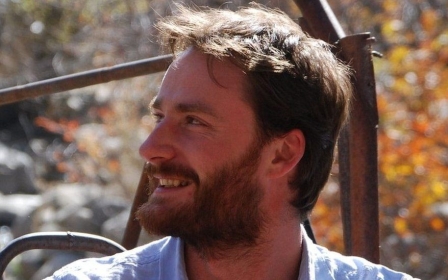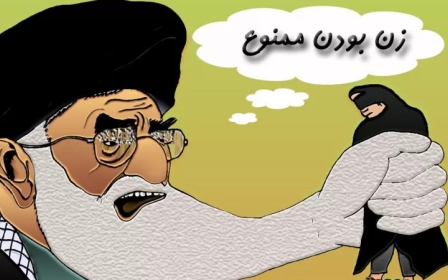Iran: Appointment of hardline police chief suggests little appetite for compromise
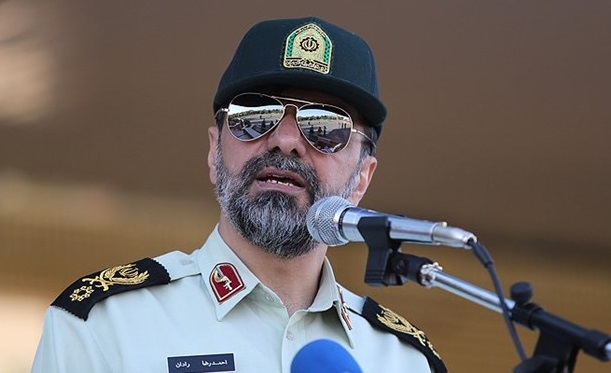
The appointment of the notorious General Ahmad Reza Radan as Iran's new police chief on Saturday suggests the authorities' brutal crackdown on protests, which has so far seen a reported 481 demonstrators killed and numerous executions, is set to continue.
The country has been shaken by demonstrations since September, when a 22-year-old Kurdish woman, Mahsa Amini, died in police custody after being detained for wearing an "inappropriate hijab".
'Radan's appointment is clearly like showing an iron fist to the protestors by the establishment'
- Iranian commentator
Her death sparked widespread condemnation of mandatory dress codes in the country, with some clerics in Iran even suggesting the laws should be softened and the "morality police" that enforce them disbanded.
But Radan's appointment by Supreme Leader Ayatollah Ali Khamenei shows the government is determined not to let up on its crackdown on protests or listen to their demands to end strict hijab rules.
Radan has hit out at "deviant" dress in the past, developing a reputation for his tough stance on dissenters when he was deputy police chief during the government crackdown on the 2009 "Green movement" protests sparked by alleged vote-rigging in that year's elections.
“Beat them up… Every broken leg [of protestors]... [will bring you] a reward [in the next world],” Radan was heard saying on a leaked audio recording in 2009.
'Deviant western hairstyles'
In the 1980s, Radan was a member of the Islamic Revolutionary Guards Corps, but starting in the 90s he joined the newly-founded police force of Iran.
Later, in 2006, he was tapped to command the police in Tehran where he zealously enforced conservative dress codes, ordering the police to detain young men who wore “deviant western hairstyles."
“This is society, it is not the person’s own area to appear in whatever way he wants," he said at the time.
He added that those men who wear “inappropriate” shirts would be also detained.
He also issued an ultimatum, warning “private companies and hospitals” to stop their staff from wearing ties, claiming that wearing a necktie was "promoting the symbol of the west.”
In 2008, Radan was promoted as deputy to Iran's police chief, General Esmail Ahmadi-Moghaddam.
During this period, he worked on strengthening the controversial “morality police”, increasing patrols in the big cities.
'During Radan’s time, I was detained by morality police forces four times, and it was for simple things, because a little part of my hair was out of the scarf'
- female journalist
He had already “multiplied the number of patrols” to “cover all the roads and streets of Tehran, as well as parks”.
Radan also ordered the detention of women wearing long boots or short headscarves.
Roya, 35, a female journalist who preferred not to give her full name for reasons of security, told Middle East Eye that Radan's stint overseeing Tehran was atrocious for women.
“During Radan’s time, I was detained by morality police forces four times, and it was for simple things, because a little part of my hair was out of the scarf," she said.
"Wherever we passed in Tehran, there were these patrols and we were really afraid and intimidated. Everywhere we went on the streets, we were worried that these patrols may arrive."
Kahrizak prison scandal
Following the 2009 presidential elections and the declaration of conservative incumbent Mahmoud Ahmadinejad as president, reformist candidates rejected the results, saying the ballots were rigged.
Demonstrators took to the streets across the country - in what became known as the Green Movement - in protest against what they saw as a denial of democracy.
The crackdown, overseen by Radan, provoked condemnation internationally, with dozens reportedly killed. Following the protests, there were also reports of torture and the death of several protestors at the Kahrizak detention centre, also overseen by Radan. The Islamic Republic confirmed the death of at least three people there.
“I never regret my performance during the 2009 sedition, and if there is a sedition again, I will deal decisively with it again," he later said of the protests.
'I never regret my performance during the 2009 sedition, and if there is a sedition again, I will deal decisively with it again'
- Ahmad Reza Radan, police chief
At the time, Moghadam, Iran’s police chief, denied any involvement of himself and Radan in the Kahrizak scandal.
However, in 2011, the United States applied sanctions against Radan for violating human rights during the protests. A few years later, Radan suggested that he was questioned and interrogated for his role in Kahrizak.
He later told the IRGC-affiliated Tasnim news agency: “During the sedition, in the daytime, I went to the streets and dealt with seditionists, and at night I was interrogated.”
In 2014, one year after the victory of reformist-backed Hassan Rouhani, who had vowed to put an end to the morality police patrols, Radan was removed from the position of deputy police chief and was sent to be chair of the Police Strategic Studies Center.
A source close to the conservatives told MEE that Radan was dismissed following the lobbying of Rouhani’s government as he was still adamant to continue the morality police patrols in the streets.
“When Rouahni won the elections in 2013, his brother quickly called Radan and reprimanded him and told him to stop the morality police - however, he resisted to some extent," said the source.
Signal to protestors
The appointment of Radan, with his reputation, has been viewed as a clear sign that the establishment in Iran isn't interested in giving in to protesters' demands.
Meanwhile, Abdul Samad Khorramabadi, the deputy attorney general, announced that the Attorney General's Office had ordered police to “deal decisively” with women who no longer wear hijab across the country.
“Besides the repression, Radan will counter those women who have recently defied the Islamic Republic hijab law and don’t wear any scarf in the streets,” a political commentator, who didn’t want his name to be disclosed, told MEE, referring to the increasing number of women who have defied the law since the protests began.
He added that such appointments by the establishment suggested they hadn't been listening to people’s protests, and that this would have serious repercussions for the Islamic Republic in the long term if they refused any reforms.
“[Radan's] appointment is clearly like showing an iron fist to the protestors by the establishment," said the commentator.
Middle East Eye propose une couverture et une analyse indépendantes et incomparables du Moyen-Orient, de l’Afrique du Nord et d’autres régions du monde. Pour en savoir plus sur la reprise de ce contenu et les frais qui s’appliquent, veuillez remplir ce formulaire [en anglais]. Pour en savoir plus sur MEE, cliquez ici [en anglais].


